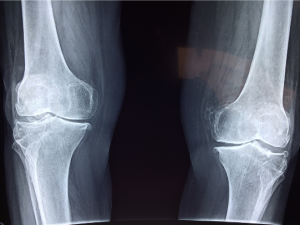CBN: 10 Benefits Of This Brain-Friendly Cannabinoid
When you think of cannabis compounds, CBD and THC probably come to mind first. But there’s a lesser-known, yet incredibly exciting cannabinoid gaining traction: CBN, or cannabinol. While it may be a minor cannabinoid in terms of concentration, it’s proving to be major when it comes to potential brain and body benefits. Let’s dive into […] The post CBN: 10 Benefits Of This Brain-Friendly Cannabinoid appeared first on Purality Health® Liposomal Products.

When you think of cannabis compounds, CBD and THC probably come to mind first. But there’s a lesser-known, yet incredibly exciting cannabinoid gaining traction: CBN, or cannabinol.
While it may be a minor cannabinoid in terms of concentration, it’s proving to be major when it comes to potential brain and body benefits.
Let’s dive into what makes CBN so special—and why researchers are paying closer attention to it.
 So, What Exactly Is CBN?
So, What Exactly Is CBN?
CBN is what’s known as a metabolite of THC. As cannabis ages (especially when exposed to heat and light), THC starts to degrade and convert into CBN. While freshly harvested cannabis contains very little CBN, older or oxidized cannabis can have significantly higher levels.
Think of it as the fine wine of THC. But this is important: CBN doesn’t produce a “high” like THC.
How?
CBN has a low binding affinity for CB1 receptors in your brain (those responsible for psychoactive effects), and a somewhat higher affinity for CB2 receptors, which are more involved in immune response and inflammation. In this way, CBN offers therapeutic effects without altering your state of mind.
How Can CBN Support Your Brain and Body?
While CBN research is still developing, early findings are incredibly promising—especially when it comes to brain health, sleep, and neuroprotection.
Here are some of the top potential benefits of CBN:
 1. Natural Sleep Support
1. Natural Sleep Support
CBN is widely known for its sedative effects. Some studies even suggest that just 5 mg of CBN may be as calming as 10 mg of the sleep medication Valium!
While more human studies are needed, preliminary data shows that CBN may help people fall asleep faster, stay asleep longer, and experience deeper rest.
Unlike pharmaceutical sleep aids, which can leave you groggy or dependent, CBN appears to work in harmony with your body’s natural rhythms, potentially improving sleep quality without the unpleasant next-day side effects.

 2. Pain Relief
2. Pain Relief
CBN interacts with neurons responsible for processing pain—specifically, the same neurons affected by capsaicin (the compound that makes chili peppers hot). This makes it a promising candidate for topical and internal pain relief, especially for chronic conditions like arthritis or nerve pain.
Its ability to reduce inflammation while dulling the pain response may offer dual-action comfort, making it a potential game-changer for people looking for alternatives to over-the-counter painkillers or opioids.
 3. Powerful Antibacterial Properties
3. Powerful Antibacterial Properties
In lab studies, CBN has been shown to fight off antibiotic-resistant bacteria, including MRSA. As antibiotic resistance continues to be a growing global concern, cannabinoids like CBN could become key players in the future of antimicrobial medicine. The implications here are huge—CBN might not just treat infections but could also be used in hospital settings or topical applications where resistance to traditional antibiotics is common.
 4. Anti-Seizure Support
4. Anti-Seizure Support
Early animal research suggests that CBN may have anticonvulsant properties, especially when used in combination with other cannabinoids.
In studies on mice, CBN helped reduce the frequency and intensity of seizures. This positions CBN as a potential supplement for managing seizure disorders such as epilepsy, and it may be especially effective in broad-spectrum cannabinoid therapies that leverage multiple compounds for a synergistic effect.
 5. Anti-Inflammatory Agent
5. Anti-Inflammatory Agent
Chronic inflammation is at the root of many conditions, from arthritis to Crohn’s disease. Animal studies show that CBN can reduce inflammation and allergic responses, including decreasing mucus production in response to allergens. This suggests CBN may offer relief not only for internal inflammation but also for respiratory or skin-related inflammatory conditions, helping the body to self-regulate immune responses more effectively.

 6. Appetite Stimulant
6. Appetite Stimulant
Unlike CBD, which may reduce appetite in some users, CBN appears to stimulate hunger—making it particularly useful for individuals experiencing appetite loss due to illness or medical treatments like chemotherapy.
In preclinical studies, animals given CBN ate more frequently and consumed more food overall. This effect could make CBN a valuable option for patients dealing with wasting syndromes or eating disorders, supporting recovery and nutritional intake.
Don’t worry—CBN isn’t going to suddenly make you start eating so much that you gain weight. Instead, it balances metabolism so that those who aren’t eating enough do in a healthy way. If you’re already eating enough, you don’t have anything to worry about!
 7. Anti-Cancer Potential
7. Anti-Cancer Potential
Preliminary studies show that CBN may help inhibit the growth of cancer cells, particularly in certain types of lung cancer. It’s been shown to reduce tumor size and limit cell proliferation in lab settings.
While it’s too early to say whether CBN can be a reliable cancer treatment, it could play a role in supportive cancer care, helping to manage symptoms or complement existing therapies through its anti-inflammatory and appetite-stimulating effects.
 8. Glaucoma Support
8. Glaucoma Support
High intraocular pressure is a major risk factor for glaucoma, a condition that can lead to blindness. Research shows that CBN may help reduce this pressure, while also offering neuroprotective benefits for the optic nerve. In high doses, CBN could become part of eye drop formulations that protect vision by supporting the health of retinal cells and maintaining healthy fluid levels in the eye.

 9. Bone and Skin Health
9. Bone and Skin Health
CBN may stimulate the production of new bone cells, supporting healing and potentially offering benefits for conditions like osteoporosis. It’s been shown to activate stem cells involved in bone formation, which may help accelerate recovery from fractures or prevent age-related bone density loss.
On the skin side, CBN shows potential in reducing skin cell overgrowth, making it a possible therapeutic for psoriasis and other inflammatory skin conditions. Plus, it crosses the skin barrier more effectively than THC, making it ideal for topical formulations.
 10. Neuroprotection
10. Neuroprotection
One of the most exciting areas of CBN research is its neuroprotective potential. In animal models of ALS (Amyotrophic Lateral Sclerosis), CBN helped delay the onset of symptoms.
Additional studies suggest it may protect brain cells from oxidative stress and inflammation—two major factors in cognitive decline. This positions CBN as a potential ally in protecting against Alzheimer’s, Parkinson’s, and other neurodegenerative diseases, with the possibility of preserving brain function as we age.
The Bottom Line
CBN may be a minor cannabinoid in quantity, but its benefits are anything but minor. From promoting restful sleep to fighting inflammation, bacteria, and even supporting brain and bone health, CBN is quickly emerging as a star player in the cannabinoid world.
As research continues to evolve, one thing is clear: CBN deserves a place in the spotlight for anyone looking to support their health—especially their brain and nervous system—in a natural, plant-based way.
Are you ready to experience the benefits of CBN yourself?
>> Now you can in the most delicious way possible (all you have to do is click here)
The post CBN: 10 Benefits Of This Brain-Friendly Cannabinoid appeared first on Purality Health® Liposomal Products.
What's Your Reaction?

































